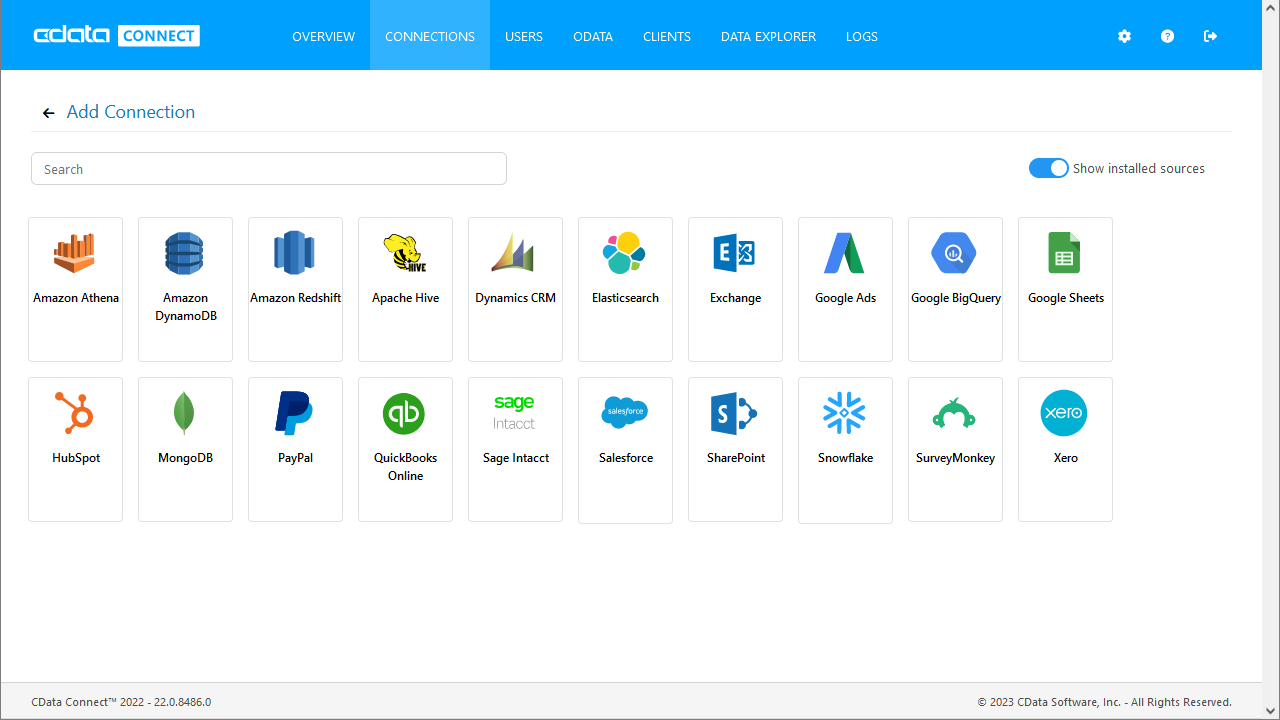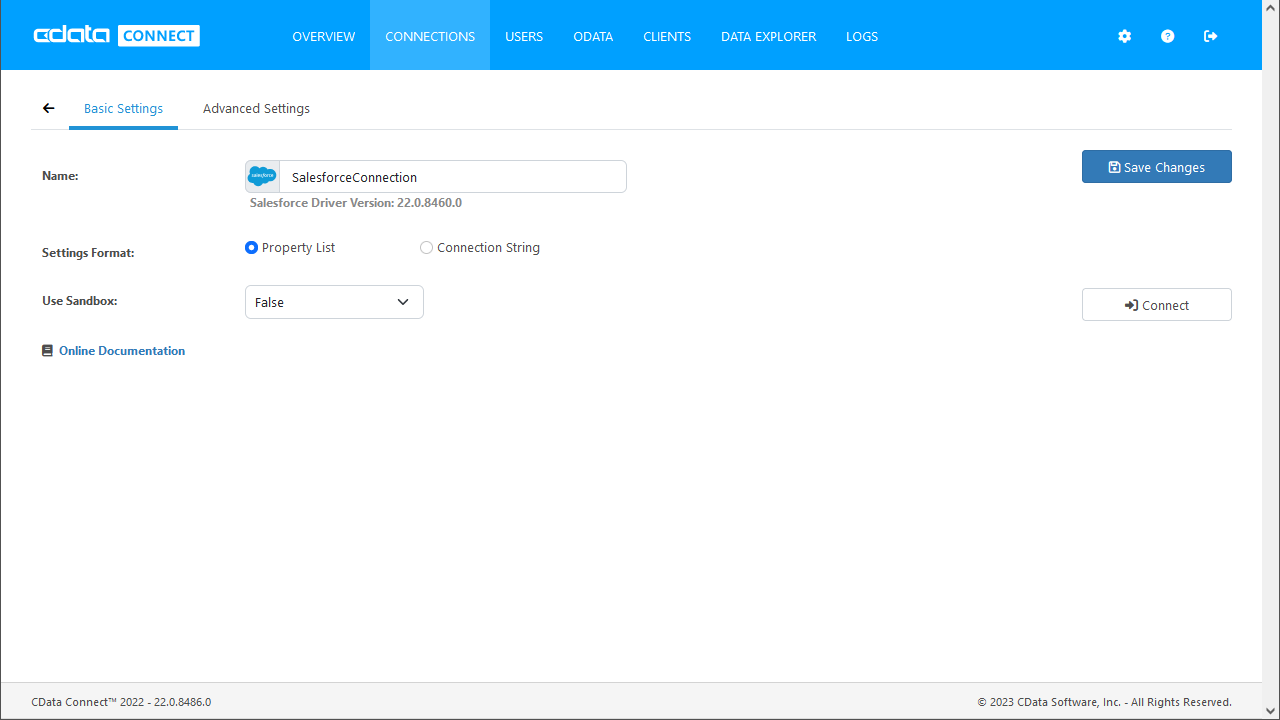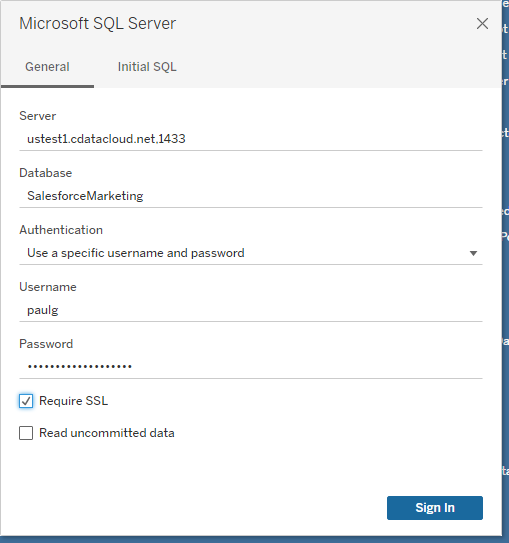Discover how a bimodal integration strategy can address the major data management challenges facing your organization today.
Get the Report →Visualize Kafka Data in Tableau Desktop (through CData Connect)
Create a virtual SQL Server database for Kafka data in CData Connect (or Connect Server) and build visualizations from live Kafka data in Tableau Desktop.
Tableau is a visual analytics platform transforming the way businesses use data to solve problems. When paired with CData Connect (or Connect Server), you can easily get access to live Kafka data within Tableau.
CData Connect Server provides a pure SQL Server interface for Kafka, allowing you to easily build reports from live Kafka data in Tableau Desktop — without replicating the data to a natively supported database. As you build visualizations, Tableau Desktop generates SQL queries to gather data. Using optimized data processing out of the box, CData Connect Server pushes all supported SQL operations (filters, JOINs, etc) directly to Kafka, leveraging server-side processing to quickly return the requested Kafka data.
This article shows how to create a virtual SQL Server database for Kafka, connect to the virtual database in Tableau, and build a simple chart.
Create a Virtual SQL Server Database for Kafka Data
CData Connect Server uses a straightforward, point-and-click interface to connect to data sources and generate APIs.
-
Login to Connect Server and click Connections.
![Adding a connection]()
- Select "Kafka" from Available Data Sources.
-
Enter the necessary authentication properties to connect to Kafka.
Set BootstrapServers and the Topic properties to specify the address of your Apache Kafka server, as well as the topic you would like to interact with.
Authorization Mechanisms
- SASL Plain: The User and Password properties should be specified. AuthScheme should be set to 'Plain'.
- SASL SSL: The User and Password properties should be specified. AuthScheme should be set to 'Scram'. UseSSL should be set to true.
- SSL: The SSLCert and SSLCertPassword properties should be specified. UseSSL should be set to true.
- Kerberos: The User and Password properties should be specified. AuthScheme should be set to 'Kerberos'.
You may be required to trust the server certificate. In such cases, specify the TrustStorePath and the TrustStorePassword if necessary.
![Configuring a connection (SQL Server is shown).]()
- Click Save Changes
- Click Privileges -> Add and add the new user (or an existing user) with the appropriate permissions.
With the virtual database created, you are ready to connect to Kafka data from Tableau Desktop.
Visualize Live Kafka Data in Tableau Desktop
The steps below outline connecting to the virtual Kafka database in CData Connect and building a simple visualization from the data.
- Open Tableau and click "Microsoft SQL Server" under Connect -> To a Server.
- In the connection wizard, enter the values for your CData Connect instance and click "Sign In"
- Server: the address of your Connect instance and port of the TDS endpoint, separated by a comma (default port is: 1433)
- Database: the virtual database you configured for the Kafka data
- Username & Password: the credentials for a CData Connect user
![Connect to CData Connect from Tableau Desktop]()
- Select your newly created database and the table(s) you wish to visualize (defining relationships for JOINed tables as needed).
- Select Dimensions and Measures and configure your visualization.
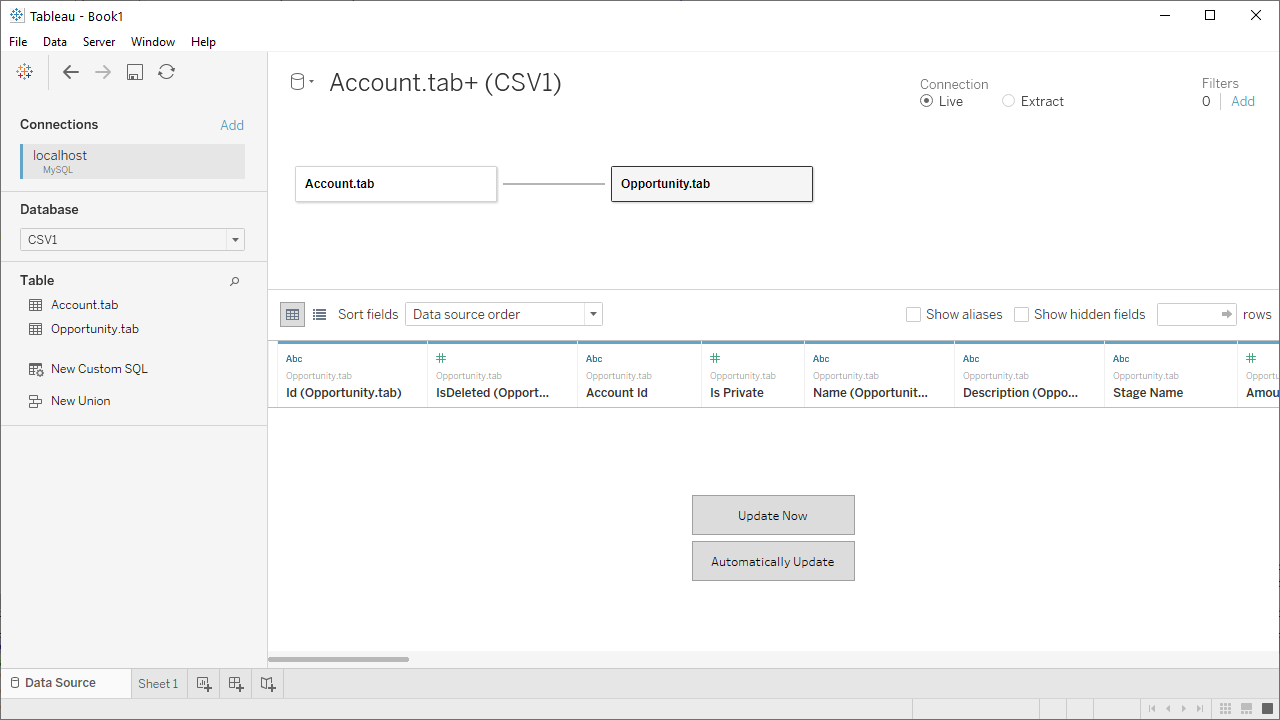
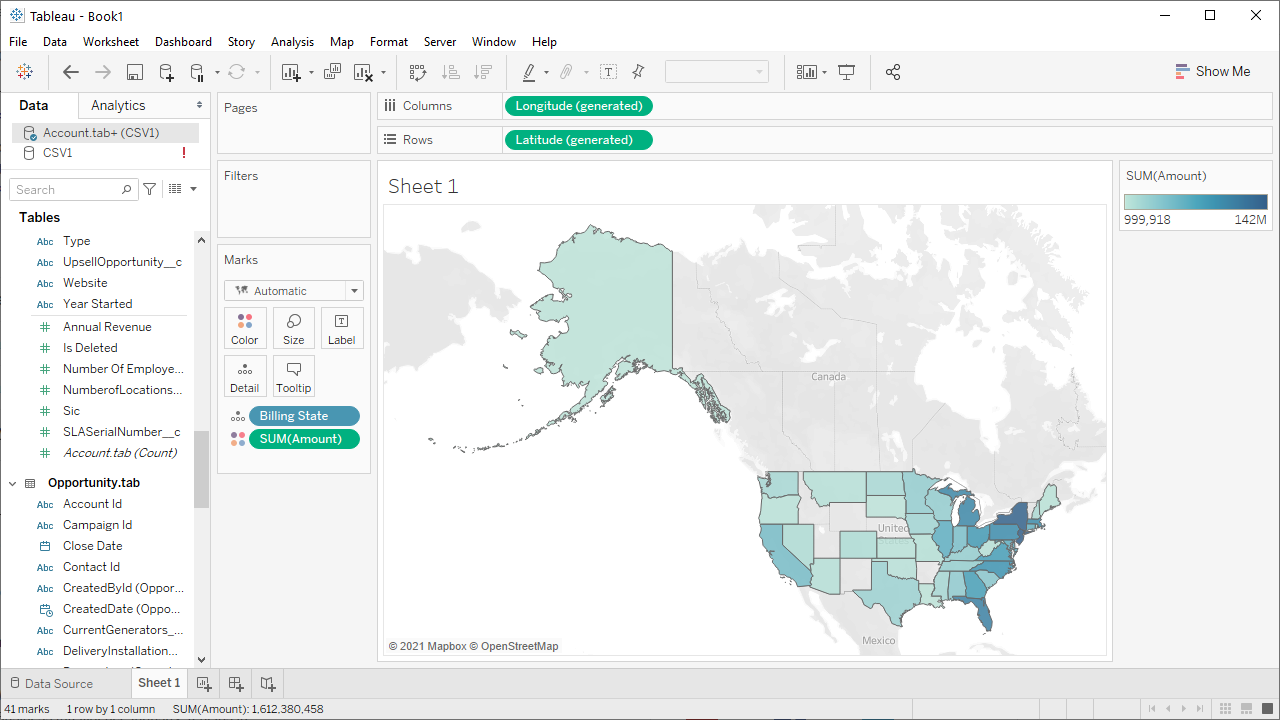
SQL Access to Kafka Data from On-Premise Applications
At this point, you have a direct connection to live Kafka data from your Tableau Desktop workbook. You can create new visualizations, build dashboards, and more. For more information on gaining SQL access to data from more than 200 SaaS, Big Data, and NoSQL sources (including Kafka) from desktop applications like Tableau refer to our CData Connect page or download a free trial.






